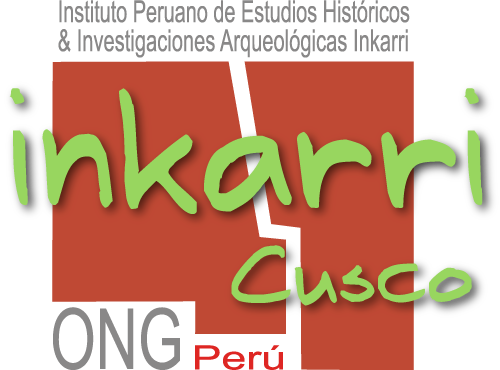The missions of the Institute
As its name suggests, the missions of the Instituto Peruano de Estudios Históricos & Investigaciones Arqueológicas Inkarri are to promote, encourage and carry out scientific research programs of a historical, archaeological and/or anthropological nature throughout the Peruvian national territory. Its main line of research is the study of the permanent presence of Inca and pre-Inca civilizations in the Peruvian Amazon jungle and the search for the location of its main center of occupation and expansion. The hypothesis of the existence of a major Amazonian archaeological center, like that of the legendary lost city of Païtiti, constitutes one of the main avenues of research of Thierry Jamin and his group since 1998. The results of the latest campaigns of The exploration of the Inkarri group goes in this direction.
So, the Inkarri Institute aims to protect by all legal means the pre-Hispanic cultural, historical and archaeological heritage throughout the Peruvian territory.
As part of its annual research campaigns, the Inkarri Institute also supports local populations with the aim of improving their conditions. These efforts are being made within the framework of various cultural, economic or social projects: sanitary projects (construction of dispensaries), educational development projects (construction of schools), agricultural projects (installation of distribution channels and promotion of agricultural production. projects, etc.), economic and tourist projects (aid for the construction of tracks or roads, preparation, installation and promotion of tourist circuits in the sense of solidarity tourism, etc.), projects aimed at protecting and promoting the environment, etc.
Work carried out within a legal framework
In addition, the Inkarri Institute works exclusively within the legal frameworks provided for by Peruvian law, in coordination with official institutions and administrations: Ministry of Culture, Decentralized Directorates of Culture (DDC-Cusco, DDC-Madre de Dios, etc.), Ministry of the Environment, National Service of Protected Natural Areas (SERNANP), regional governments, provinces, districts, municipalities, peasant communities, etc.
After each investigative campaign, duly authorized by the official Peruvian authorities, the results of archaeological research by the Inkarri group are published in a final report, transmitted to the Ministry of Culture. Likewise, these investigations are the subject of regular publications in the professional and/or general public press, at national and international level.
In its exploration zones, the Inkarri group tries to constitute itself as a dynamic element in a perspective of economic and social development for the benefit of isolated populations, anxious to access a legitimate improvement of their living conditions, particularly in terms of health and education. The Inkarri Institute also tries to provide support to these communities for the development of communication routes, access to electricity and drinking water, etc.
To this end, the Inkarri Institute tries to promote the organization and planning of economic and social projects, actively supporting the creation and action of other associations, local committees and small or micro enterprises of municipal interest. , as part of the production of economic activity capable of helping the development of these populations: development of local tourist circuits, construction of inns and/or restaurants, development of craft activities, etc.
Help for local communities
In the education sector, the Inkarri Institute supports local communities with provincial, regional and central institutions to help build and manage rural school institutions, create and manage rural libraries, access to computers, the Internet and multimedia communication.
The Inkarri Institute also considers its environmental protection programs in the regions concerned by its investigations as a priority. It actively supports local communities and regional and central institutions for all kinds of actions aimed at protecting ecosystems. The Inkarri group supports and advises local communities in the context of reforestation projects, municipal development within the framework of water distribution or wastewater disposal works, electrification, transport or development of means of communication.
At their request, the Inkarri Institute provides legal, technical and/or financial advice to local communities within the framework of strengthening the public and/or private management of its institutions: legal, technical and/or financial advice in the framework of economic and/or social projects, such as the construction of health, educational or tourist infrastructures, etc. ; legal, technical and/or financial advice in connection with the creation of small or micro enterprises; legal, technical and/or financial advice in the context of agricultural or industrial development projects (mining, fishing, fair tourism, etc.), in the context of technological innovations, etc. ; legal, technical and/or financial advice in the context of the marketing of local products at regional and national level, or for export.
Likewise, the Inkarri Institute makes its legal service available to local communities and their inhabitants for the defense of their rights: assistance in access to real estate archives, access to justice, health, ‘information, the defense of citizens’ rights, etc.
The Inkarri Institute defends the rights of indigenous populations and first peoples. He categorically subscribes to the provisions established by the United Nations which protect the rights and freedoms of indigenous populations.
Its support actions are carried out within a framework of total equity, justice and political and ideological independence. Its principles of action are transparency and absolute respect for professional ethics, the only conditions to guarantee the effectiveness of actions carried out in the field.
To carry out its research missions and its social and cultural projects, the Inkarri Institute uses all the legal means deemed necessary. It can request the financial and technical support of Peruvian national institutions, private and/or public, but also of any international institution, private and/or public, wishing to support its action. Peruvian and international private or public companies and associations, as well as individuals, can also actively contribute to the functioning of the Inkarri Institute.
